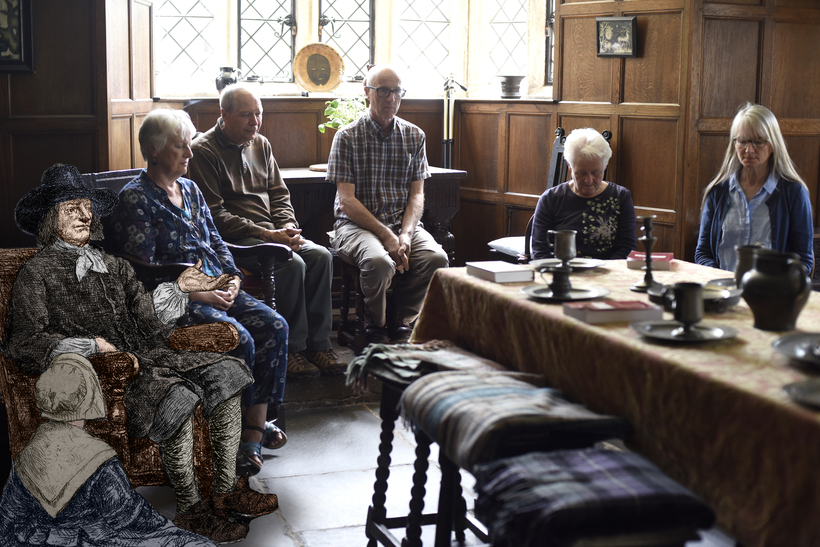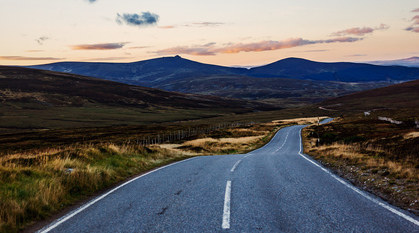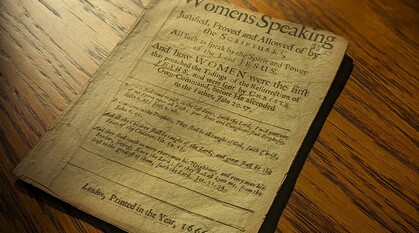Still here – making connections by exploring Quaker history
Quaker history is well known and intriguing. Rhiannon Grant shares how Quaker heritage can create a starting point for conversations about Quakers today.

Some of the best known things about Quakers are about history: Quaker pacifism and conscientious objection, Quakers going to North America and founding Pennsylvania, Quaker businesses, and Quaker work towards the abolition of enslavement. Similarly, some of the most interesting things Quakers own are meeting houses, many of which are historic.
This means that Quaker history is a point of connection for some people. They might see a meeting house and wonder what it is, what it's for, and who built it. They might hear stories about Quakers in the past and want to know more. They might learn that someone famous was a Quaker and be curious about what difference that made.
Starting from where people are
The goal of outreach work isn't primarily to teach people Quaker history, of course. Quaker outreach is about sharing with others the Quaker community as it is today: current campaigns not the work of the past, the role of spirituality throughout life as we live it rather than in previous generations, what it means to be pacifist in relation to today's wars, and how Quaker worship can support a grounded and ethical life in relation to what is happening now.
But outreach also involves starting from where people are. It means finding out what people actually want to know and beginning with that. The questions are connected, too: understanding some of the role spirituality has played in the lives of previous generations of Quakers can open up possibilities for what it might mean for someone today.
History can be intriguing, inspiring, and a starting point for thinking about life from different perspectives. It shouldn't always be the first thing people find out. A local meeting website should have the current times and locations of meeting for worship front and centre, including details about the welcome which is offered to children and families, and might answer questions about the history of the community or a meeting house on a separate page. But when people start with an interest in history, as when they come to visit on a Heritage Open Day or if they open a conversation with those questions, it can be a point of connection.
Challenges in Quaker history
Quaker history includes aspects which challenge neat stories about how wonderful Quakers are. There absolutely are cases of Quakers doing amazing things: standing up for what they knew to be right even when it meant risking prison or death and changing the world for the better whether in a small way or at the scale of a whole town. It's right that we remember and tell these stories.
Quakers are also human, though, and there are plenty of cases of involvement in exactly the things Quakers are known to oppose. Quakers worked to have slavery abolished, but other Quakers enslaved people. Quakers oppose violence, but there were also Quaker gunmakers. Quakers founded the Friends Ambulance Unit which provided an alternative to military service, while other Quakers joined the army. This is also part of Quaker history and our commitment to telling the truth means learning and sharing these stories as well.
Using Quaker history in outreach work
Heritage can engage people and create curiosity. The complexities of Quaker history can be a way into conversations about moral challenges today, an opening to explore how the past shapes the world, and an opportunity to show how important truth-telling is now. In planning outreach work which has a heritage element, it's useful to look for the points of interest and see what to add, what the next step or follow-up question might be. This can lead towards a wider picture and towards the modern context.
Heritage should resource, not overwhelm. If Quakers were great in the past, what is happening now which picks up on those themes? When Quakers did wrong in the past, what is happening now which works to put that right? What are the common threads, perhaps of being fallible and human and at the same time being led by an inner divine Light, which connect people in the past and the present? By asking these questions and telling stories which draw history and today together, we can reach out to people using Quaker heritage as a starting point for exploration.
Find Quaker heritage open day events on the Heritage Open Day website. Heritage Open Days run 12-21 September.


